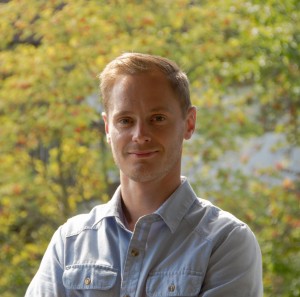Julian is currently a lecturer of Human Geography at Monash University. As a political ecologist and development geographer, his research lies at the intersection of the politics of indigenous knowledge, rural development, social mobilisation, and environmental governance. He maintains a commitment to fostering more equitable and self-determined forms of development. His current research focuses on a multi-sited study of Indigenous leadership in environmental governance and rural development.
Previous research projects and ongoing interests include:
1. Neoliberalization and the politics of ecological knowledge-in-practice: My research in Nepal and Peru, in particular, explored how (post)neoliberal re-structuring intersects with existing institutions for development. This work stressed the intersections between established development interventions and the articulation of situated ecological knowledges in practice (e.g. by re-orienting peer-to-peer farmer training around indigenous knowledge systems).
2. Re-socializing the economy – collective organization and the commons: I am interested in processes of re-socializing and re-democratizing neoliberal development. I have explored this theme in Brazil and Peru, working with informal recyclers cooperatives, rural producers cooperatives, and associations of indigenous knowledge distributors. This work focuses on the potential and challenges of collective and co-operative organization.
3. Indigenous leadership in water governance – towards sovereignty: Research in Nepal, Canada, and Australia focus on the uneven politics of governing water, and how Indigenous knowledge networks and existing environmental management practices can re-shape future landscapes of environmental decision-making.
Methodologically, I have approached these themes through community-engaged scholarship, meaning that my work addresses the ethical entanglements of conducting research in communities that are variably geopolitically positioned and which are characterized by high degrees of inequality and power imbalances. This approach is based on a variety of forms of engagement, from grounded participatory methods (e.g. work in Brazil and Nepal) and in-depth ethnographies (research in Peru), to ongoing collaborations and partnership research projects in BC, Canada, and Victoria, Australia.
Julian was a Post-Doctoral Fellow in the Institute for Resources, Environment, and Sustainability and a member of the Program on Water Governance team. Julian has more than a decade of experience working in the field of international development geographies, including graduate level research and employment with international development NGOs. Julian’s work focuses on the intersection between the politics of knowledge and social mobilisation for overcoming poverty and inequality. His work explored the rollout of small-scale water filtration facilities among BC’s First Nations communities – an approach that gained political expediency due to the Water Sustainability Act. This work focused on the intersections between indigenous conceptions of water in nature, and techno-scientific approaches to delivering ‘clean water’ to First Nations communities.
Julian’s doctoral (UBC, geography) research explored the revival and re-institutionalisation of indigenous social practices for adult peer-to-peer knowledge sharing and enhanced rural productivity in the Peruvian Southern Andes. Julian has published a historical account of these adult educators – known as kamayoq – in the Journal of Historical Geography, and he is currently working on a book manuscript based on his doctoral dissertation (which was titled “Re-animating Andean worlds: kamayoq, the politics of ‘culturally appropriate’ knowledge extension, and ethnodevelopment in the Peruvian Andes”).
Previous projects include research as an NGO consultant into adaptation to climate change in rural Nepal, and graduate (MA, University of Victoria, geography) research into inclusive waste management through recyclers’ cooperatives in São Paulo, Brazil. Julian has published the results of his work in journals such as Progress in Human Geography (debating post-neoliberalism in Latin America), Global Environmental Change (the scalar politics of adaptation), the Journal of Historical geography (historicizing ethnodevelopment), Environment and Planning A (an urban political ecology of food waste in São Paulo), and the Journal of Development Studies (public policy for inclusive waste management). He has also published a chapter in a book on community-based adaptation and is co-editor of a forthcoming special issue in Geoforum, titled ‘Rendering land investible’.
To view and download Julian’s publications, visit his profile on Monash University, Academia.edu or Research Gate.
You can reach him at: Julian.Yates [at] monash [dot] edu.

